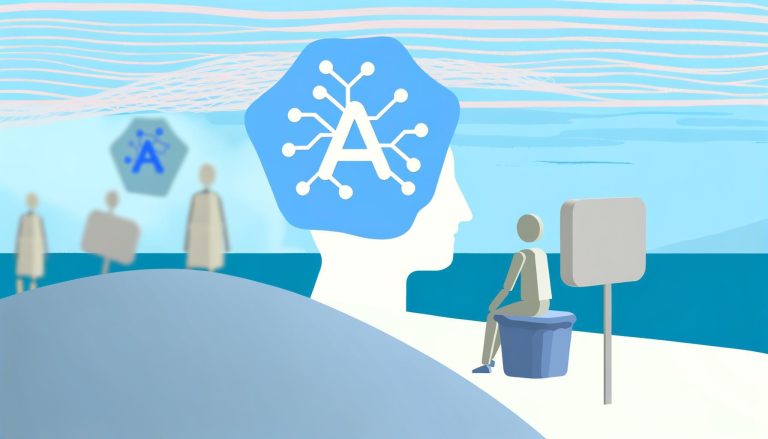In today’s fast-paced world, students face immense pressure to excel academically while maintaining their well-being. The balance between academic demands and personal life can be challenging, leading to stress and burnout. Fortunately, artificial intelligence (AI) offers innovative solutions to help students manage stress effectively. This article explores how AI-powered tools can aid students in balancing academics and well-being.
Understanding Student Stress
Stress among students is a pervasive issue that can result from various academic pressures, social expectations, and personal challenges. Recognizing the root causes of stress is the first step in addressing it effectively:
- Academic Pressure: The drive to achieve high grades and secure future opportunities.
- Time Management: Balancing multiple assignments, exams, and extracurricular activities.
- Social Expectations: The pressure to fit in and maintain a social life.
- Personal Challenges: Dealing with family issues, financial concerns, and personal health.
How AI Can Help with Stress Management
AI-powered solutions offer personalized support, real-time feedback, and data-driven insights to help students manage stress better. Here are some key ways AI can assist:
1. Personalized Stress-Monitoring Tools
AI can track students’ stress levels through various means such as wearable devices and mobile apps. These tools monitor physiological indicators like heart rate and sleep patterns, providing valuable insights into stress levels. For example, if a student experiences increased heart rate variability, the AI can suggest relaxation techniques.
2. Adaptive Learning Platforms
AI-driven learning platforms personalize the educational experience by adapting to individual learning styles and paces. This reduces unnecessary pressure and helps students grasp concepts more efficiently. These platforms can also identify areas where a student may need extra help, offering targeted support to prevent academic stress.
3. Virtual Counseling and Support
AI-powered chatbots and virtual counselors provide 24/7 support, offering students a safe space to express their concerns and receive immediate guidance. These virtual assistants use natural language processing to understand and respond empathetically, providing coping strategies and resources.
4. Intelligent Time Management
Effective time management is crucial for balancing academics and well-being. AI tools can create personalized schedules, set reminders for assignments, and suggest optimal study times based on individual productivity patterns. This helps students manage their workload efficiently, reducing stress.
5. Mindfulness and Relaxation Apps
AI-driven mindfulness and relaxation apps offer guided meditation, breathing exercises, and stress-relief techniques. These apps can recommend specific exercises based on the user’s stress levels and preferences, promoting mental well-being.
6. Peer Support Networks
AI can facilitate connections between students experiencing similar challenges, creating support networks where they can share experiences and coping strategies. These peer support networks foster a sense of community and reduce feelings of isolation.
7. Academic Performance Analytics
AI analyzes students’ academic performance data to identify patterns and predict potential challenges. By providing early warnings and actionable insights, AI helps students stay on track academically, reducing stress associated with unexpected academic difficulties.
Practical Benefits of AI in Stress Management
The integration of AI-powered tools in stress management offers numerous practical benefits for students:
- Real-Time Feedback: Instant insights into stress levels and personalized recommendations.
- Accessibility: 24/7 availability of virtual support, reducing dependence on in-person counseling services.
- Personalization: Tailored solutions that cater to individual needs and preferences.
- Efficiency: Optimized time management and study plans to enhance productivity.
- Community Building: Facilitates peer support networks, fostering a sense of belonging.
Implementing AI-Powered Stress Management
1. Choosing the Right Tools
Selecting appropriate AI-powered tools is crucial for effective stress management. Schools and educational institutions should evaluate the available options and choose tools that align with their students’ needs. Factors to consider include:
- Ease of use and accessibility.
- Comprehensive features and functionalities.
- Data privacy and security measures.
- Integration with existing educational platforms.
2. Training and Awareness
Introducing AI-powered tools requires proper training and awareness among students, educators, and parents. Schools can organize workshops and training sessions to familiarize users with the tools and their benefits. Awareness campaigns can also promote the importance of stress management and mental well-being.
3. Monitoring and Evaluation
Regular monitoring and evaluation of the AI tools’ effectiveness are essential. Educators and administrators should gather feedback from students and analyze usage data to make informed decisions about tool enhancements and updates. Continuous improvement ensures that the tools meet students’ evolving needs.
Practical Tips for Students
While AI-powered tools can significantly aid stress management, students can also adopt practical strategies to maintain a healthy balance between academics and well-being:
- Prioritize Self-Care: Make time for physical activities, hobbies, and relaxation.
- Set Realistic Goals: Break tasks into manageable chunks and set achievable goals.
- Seek Support: Don’t hesitate to reach out to friends, family, or counselors when needed.
- Practice Mindfulness: Incorporate mindfulness techniques to stay grounded and focused.
- Stay Organized: Use planners and digital tools to keep track of assignments and deadlines.
Conclusion
Balancing academics and well-being is a challenging yet essential aspect of student life. AI-powered stress management tools offer innovative solutions to help students navigate these challenges effectively. By providing personalized support, real-time feedback, and practical insights, AI can significantly reduce stress and promote mental well-being among students. Embracing these tools, along with adopting practical strategies, empowers students to achieve academic success without compromising their health and happiness.
For those looking for a comprehensive approach to stress management, apps like Zenora provide mood and habit tracking, goal setting, and journal entries, which can be personalized to support individual well-being. Leveraging these tools can help students maintain a balanced and fulfilling academic experience.





